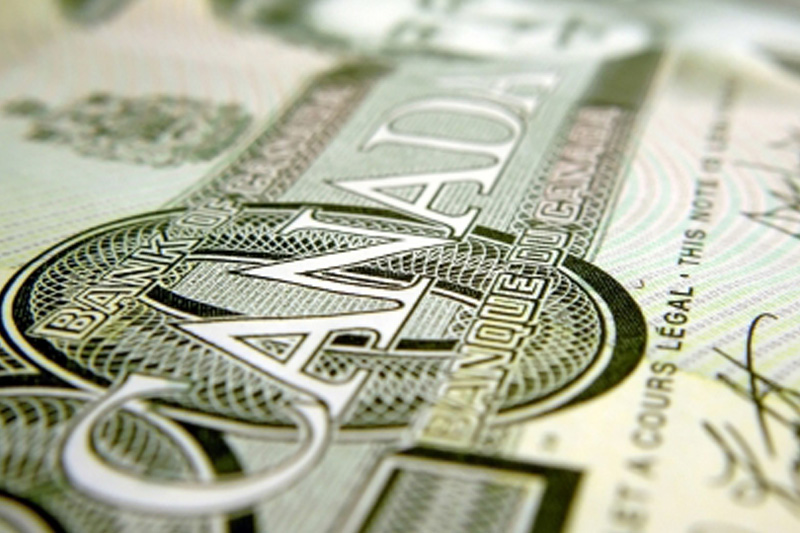(Adds minister's comments on balanced budget, commodity prices)
By Alastair Sharp
TORONTO, Dec 14 (Reuters) - Canada's weakening currency will
probably face further pressure from persistently low commodity
prices that also complicate the country's fiscal situation, the
country's finance minister said on Monday.
"Commodity prices are softening, affecting our terms of
trade and making important inputs - so vital for our
manufacturing sector - more expensive," Bill Morneau said in his
first public speech since being named to head the finance
portfolio after the Liberal government's election victory in
October.
Morneau said he was encouraged by a recent uptick in the
U.S. economy, but China and Europe were causes for concern.
"It is very likely that global economic conditions will
remain unfavorable and that subdued commodity prices will
persist," he said. "This of course has important implications
for the currency and our fiscal situation."
Morneau elaborated on this while speaking to reporters after
the speech, noting that projections for global economic growth
are weaker than they have been in recent years, which impacts
oil and other commodity prices.
"So, in an expectation that we won't see a rapid change in
global growth rates, we should expect that we will be facing a
period where our resources are unlikely to be priced back where
they were a number of years ago," he said.
The U.S. benchmark for crude oil is near an 11-year low
around $36 a barrel, while a government forecast from November
assumes that that benchmark, West Texas Intermediate CLc1 ,
will trade at an average price of $54 a barrel in 2016.
Morneau said the government is paying close attention to the
oil price move given its impact on the domestic economy and
currency, but that "we don't look at just two weeks of oil
prices when we come up with our budget numbers."
The Liberals campaigned on a platform to run budget deficits
of up to C$10 billion ($7.3 billion) a year in order to spend on
infrastructure to boost growth after the economy fell into a
modest recession in the first half of the year.
Morneau declined to say whether larger deficits would be
necessary.
($1 = 1.3744 Canadian dollars)
- English (USA)
- English (UK)
- English (India)
- English (Australia)
- English (South Africa)
- English (Philippines)
- English (Nigeria)
- Deutsch
- Español (España)
- Español (México)
- Français
- Italiano
- Nederlands
- Português (Portugal)
- Polski
- Português (Brasil)
- Русский
- Türkçe
- العربية
- Ελληνικά
- Svenska
- Suomi
- עברית
- 日本語
- 한국어
- 简体中文
- 繁體中文
- Bahasa Indonesia
- Bahasa Melayu
- ไทย
- Tiếng Việt
- हिंदी
UPDATE 1-Canada's Morneau says currency to face further pressure
Published 2015-12-14, 03:02 p/m
UPDATE 1-Canada's Morneau says currency to face further pressure

Latest comments
Install Our App
Risk Disclosure: Trading in financial instruments and/or cryptocurrencies involves high risks including the risk of losing some, or all, of your investment amount, and may not be suitable for all investors. Prices of cryptocurrencies are extremely volatile and may be affected by external factors such as financial, regulatory or political events. Trading on margin increases the financial risks.
Before deciding to trade in financial instrument or cryptocurrencies you should be fully informed of the risks and costs associated with trading the financial markets, carefully consider your investment objectives, level of experience, and risk appetite, and seek professional advice where needed.
Fusion Media would like to remind you that the data contained in this website is not necessarily real-time nor accurate. The data and prices on the website are not necessarily provided by any market or exchange, but may be provided by market makers, and so prices may not be accurate and may differ from the actual price at any given market, meaning prices are indicative and not appropriate for trading purposes. Fusion Media and any provider of the data contained in this website will not accept liability for any loss or damage as a result of your trading, or your reliance on the information contained within this website.
It is prohibited to use, store, reproduce, display, modify, transmit or distribute the data contained in this website without the explicit prior written permission of Fusion Media and/or the data provider. All intellectual property rights are reserved by the providers and/or the exchange providing the data contained in this website.
Fusion Media may be compensated by the advertisers that appear on the website, based on your interaction with the advertisements or advertisers.
Before deciding to trade in financial instrument or cryptocurrencies you should be fully informed of the risks and costs associated with trading the financial markets, carefully consider your investment objectives, level of experience, and risk appetite, and seek professional advice where needed.
Fusion Media would like to remind you that the data contained in this website is not necessarily real-time nor accurate. The data and prices on the website are not necessarily provided by any market or exchange, but may be provided by market makers, and so prices may not be accurate and may differ from the actual price at any given market, meaning prices are indicative and not appropriate for trading purposes. Fusion Media and any provider of the data contained in this website will not accept liability for any loss or damage as a result of your trading, or your reliance on the information contained within this website.
It is prohibited to use, store, reproduce, display, modify, transmit or distribute the data contained in this website without the explicit prior written permission of Fusion Media and/or the data provider. All intellectual property rights are reserved by the providers and/or the exchange providing the data contained in this website.
Fusion Media may be compensated by the advertisers that appear on the website, based on your interaction with the advertisements or advertisers.
© 2007-2025 - Fusion Media Limited. All Rights Reserved.